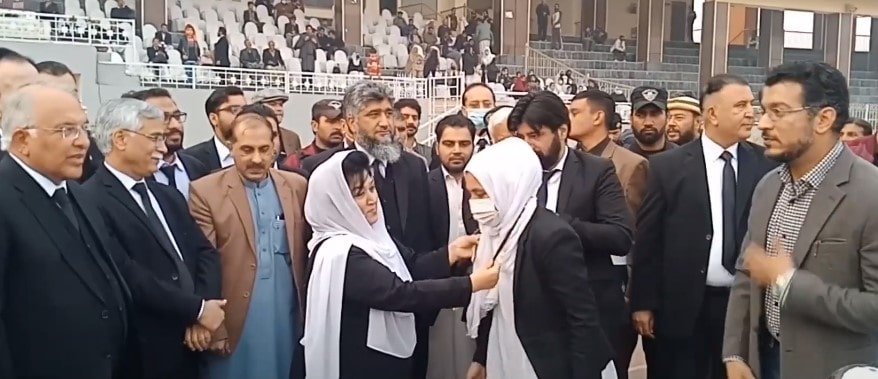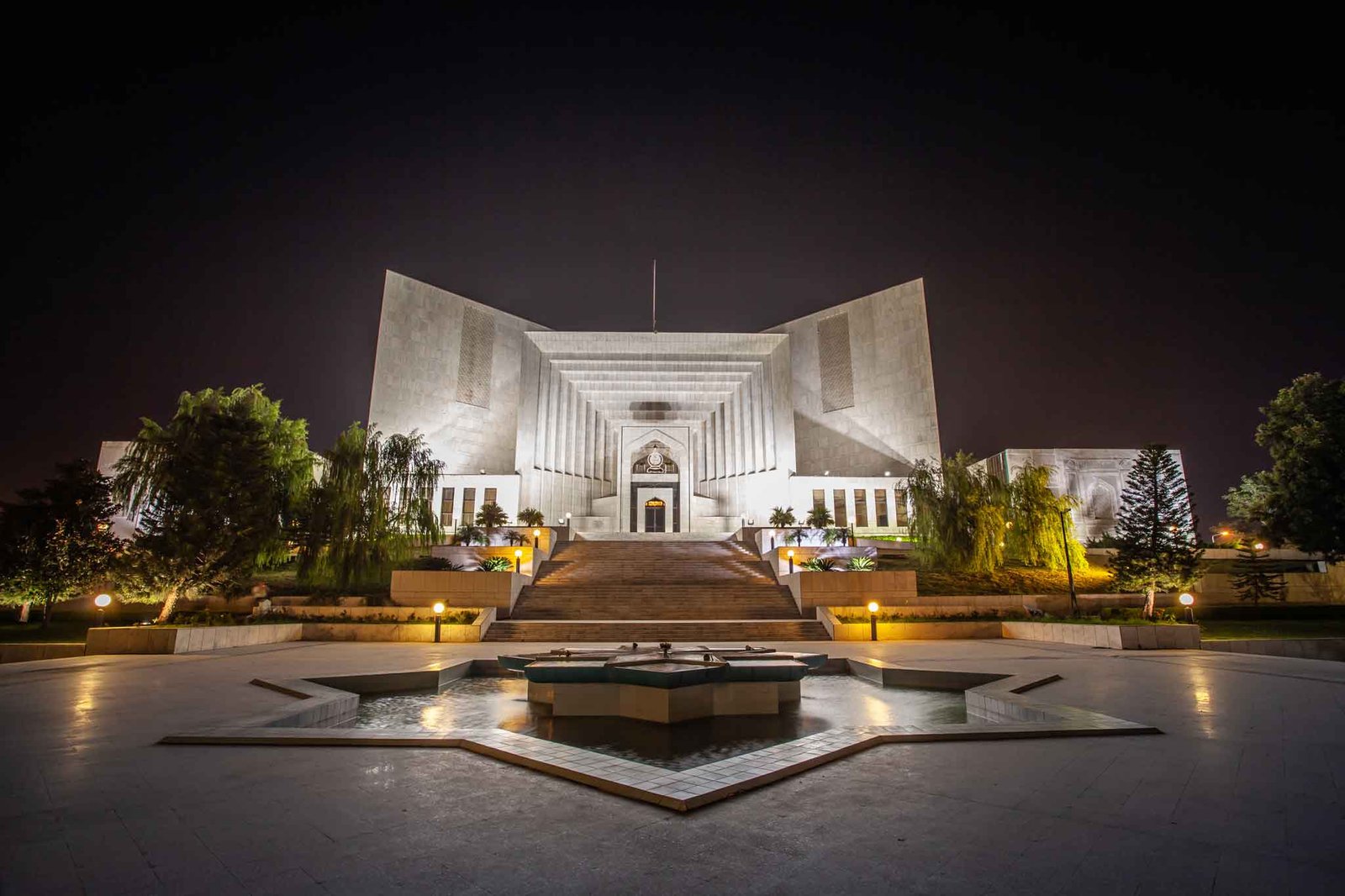Pakistan’s National Law Secretary and Advocate Advocate each have one vote on the Constitutional Commissioners of Pakistan, and a multiparty, cross-party subcommittee of government established by Article 175 of the Constitutional reviews the Committee’s recommended nominations.
Top 5 supreme court of Pakistan judges
1: Mr Justice Qaisar Rashid Khan
Professional Career
- She was admitted to practice before the appellate authorities in 1984.
- A member of the High Court Bar since 1991.
- In 2008, they became a member of the Supreme Court’s Advocate Roster.
Activities at Bar
- Appointed to the Provincial Bar Council in November 1998 and again in April 2004.
- Becoming the very first lawyer under 3 M.P.O. to be jailed after the emergency declaration on November 3, 2007, D.I. Khan State Jail was a terrifying place to spend the night.
- Won the most ballots of any candidate for the Pakistan Bar Council and was nominated on December 22, 2010.
Appointments
- From March 17, 2008, till March 25, 2010, I functioned as an Associate Advocate General in Khyber Pakhtunkhwa.
- Attorney for the University of Science and Technologies in Peshawar, the National Bank of Pakistan, the United Bank Limited, the Askari Commercial Bank, the Allied Banking Corporation, and the Bank of Khyber.
As a Chief Justice
- On November 16, 2020, I accepted the oaths of office as Temporary Presiding Judge of the Peshawar High Courts.
- Received the word of office on January 9, 2021, as Chief Officer of the Peshawar High Tribunal.
2: Mr Justice Rooh ul Amin Khan

Professional Career
- 1986 A Member of the Bar of the Northwest Frontier Province, Pakistan
- Became a member of the Bar in 1989 after being admitted to the High Court of Peshawar, N.W.F.P., Pakistan
- Became a member of the Pakistan Bar in 2001 after enrolling as an Advocate at the Supreme Court of Pakistan in Islamabad.
Activities at Bar
- You must: Keep your position as Deputy Attorney General of Pakistan and Assistant Advocate General of the Northwest Frontier Province;
- Special Government Pleader, N.W.F.P.; Service Tribunal; Issues involving Civil Servants; Attorney, Federal Administrative Court; Assists the Judge as Federal Counsel in Issues of Varied Character
- Acting as State Lawyer for the Government of North West Frontier Province and representing the Office of the Solicitor General of North West Frontier Province in proceedings even before Constitutional Court, the Federal Shariat Court of Pakistan, and the Judicial Branch of Pakistan in Islamabad.
- The Right to Appeal and Seek Amendment.
- Serving as an adjudicator for the Banks Circuits; routinely presiding over matters including Civil, Taxation, Crime, Judicial, Services, Employment, Commerce, Taxation, Taxes, and Customs; and interacting with all types of law.
Publications
- Writer for the college journal of Government College, Peshawar; Pushto “Afsana” (fiction). Writer of the Pushto essay “HUZOOR BAHESIAT SIPAH SALAR” on the military qualities of the Holy Prophet Hazrat Mohammad (S, A.W.), which appeared in the 1984 issue of Jurist (the yearly publication of Khyber Law Faculty at the University of Peshawar).
- Wrote “H.U.Z.O.O.R. BATOR-e-MUSLIM,” an Urdu piece on Hazrat Muhammad’s (S, W, A) pedagogical style, which appeared in the 1984 issue of Judge (the annual journal of Khyber Law College at the University of Peshawar).
3: Ms. Justice Mussarat Hilali
Professional Career
- She was admitted to practice before the District Courts in 1983. I have been a member of the High Court Bar since 1988. Credentialed as a lawyer by the Supreme Court of Pakistan in 2006.
Activities at Bar
- The only woman to hold the positions of President (1988–1989), Vice President (1992–1994), and Permanent Secretary (1997–1998) at the Bar.
- During 2007–2008 and 2008–2009, she was the first woman to ever serve in both of those years on the S.C.B.A.’s Executive Committee.
Judicial Career
- Permanent Judge of the Peshawar High Court confirmed on March 13, 2014.
4: Mr Justice Mohammad Ibrahim Khan
Education
- Graduated from Peshawar’s University Public School with a secondary school diploma in 1985.
- Earned my H.S. Diploma from Government College, Peshawar, in 1987.
- Earned B.A. in 1989 from Government College, Peshawar.
- Holds a Bachelor of Laws (L.L.B.) from Khyber Law College, Peshawar (1992).
Professional Career
- On May 18, 1993, I was admitted as an attorney in the trial courts.
- Admitted as a member of the High Court Bar on March 11, 1995
- Authorized to practise law before the Supreme Court of Pakistan as of September 26, 2008
Activities at Bar
- Held the position of K.P.K. Assistant Advocate General till the end of the year 2000.
- In 2001 and 2002, he served as N.A.B.’s Special Prosecutor.
- Served as K.P.K.’s Assistant Advocate General from 2008 to 2010.
Judicial Career
- Promoted to the position of auxiliary Judge on August 11, 2016
- The Supreme Judicial Council of Pakistan extended the term of the Permanent Governor of the Peshawar High Court by one year on 25.7.2017, with the new term beginning on 01.06.2018.
5: Ms. Justice Mussarat Hilali

Professional Career
In 1983, I was admitted as a District Court Attorney. Admitted to practise law before the High Court in 1988. Attorney at the Supreme Court of Pakistan since 2006.
Activities at Bar
- Served as the first woman to hold the positions of Treasurer from 1988 to 1989, vice president (twice) from 1992 to 1994, and director national from 1997 to 1998.
- Served as the S.C.B.A.’s first female executive member for two consecutive years (2007–2008 and 2008–2009)
Judicial Career
- On March 26, 2013, she was promoted to supplementary justice.
- Confirmed on 13.03.2014 as a Resident Member of the Peshawar High Tribunal.
6: Ms Ayesha. A Malik
Education
The appointment of Ayesha A. Malik to the Supreme Court of Pakistan as the nation’s first female Judge is an important event in that country’s 74-year history. On January 24, she took office after being officially inducted.
On Pakistan’s Supreme Tribunal, she will work alongside 16 men. Women makeup just 17% of judges in Pakistan, and therefore only 4% of those working in the highest institutions.
She attended the Paris Sorbonne, the New York University Faculty of Law, the Karachi Law Academy, and the University of London. She has a master’s in law from either the Pakistan College of Law or Harvard Law School.
Humans Rights Commission of Pakistan, an autonomous nonprofit group, declared on January 7 that “a much more female court would have far impacts on people’s accessibility to truth and the delivery of fairness.”
Activities at Bar
She was appointed to the state supreme court of Lahore, the government’s superior judiciary, in 2012.
With the argument that having a check “upsets the integrity of the female sufferer,” she worked to get “forced marriages” for physical abuse victims made illegal.
But she has also been a vocal advocate for women’s rights worldwide. In England and Australia, she testified as an official testimony on issues of child abduction, women’s rights, and fundamental safeguards.
Judicial Career
Malik has attended many programmes supported by the Office of Foreign Prosecution Education, Cooperation, and Research of the United States Department of Justice and the International Crimes and Investigations Agencies Division of the United States Embassy in Pakistan. She has just returned from the 2021 Annual Conference of the International Organization of Women Courts and the 2017 Annual Convention of the U.S. National Association of Women Magistrates. Malik has been a referee for the Fulbright Foreign Law Moot Court Championship in Islamabad and Lahore from 2018 to 2020. She has also attended the Women’s Judicial Symposium in Islamabad.
The U.S. Department of State tweeted, “her profession and persistence are examples for women in Pakistan and worldwide.” Her election is being hailed as a watershed event in Pakistan’s history.
Conclusion
Pakistan’s Federal Law Minister and Attorney General each have one ballot on the Justice Commission of Pakistan, and a two-legislative, cross-party working group of legislature established by Article 175 of the Law reviews the Commission’s suggested consultations.
There exists an argument in favour of making the most details regarding jurists of the top judicial general populace since Pakistan is a democratic state, at most in definitions of the bill of rights school of thought. The trust of the people in those establishments can grow with such openness. The people making the candidature must also before others do as such.




